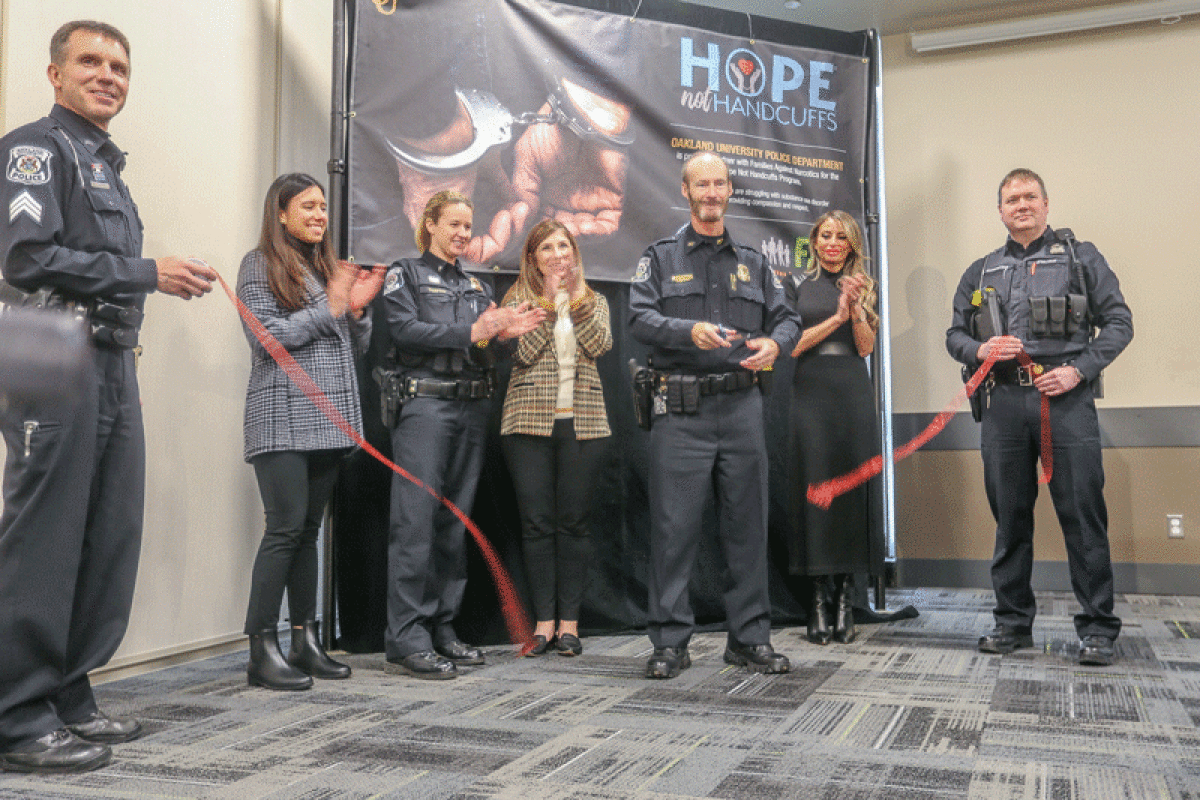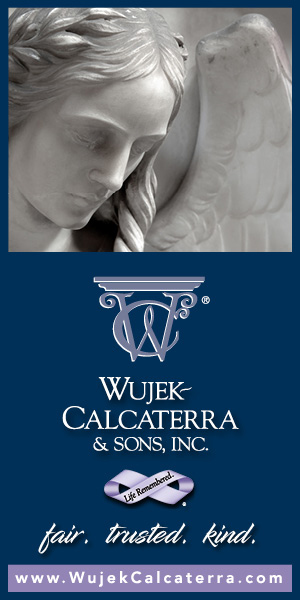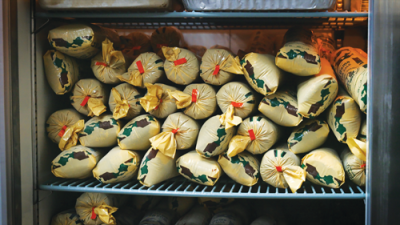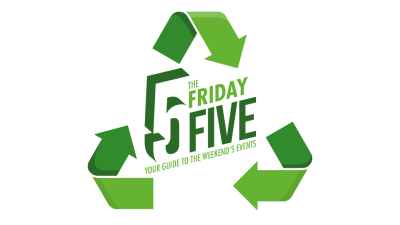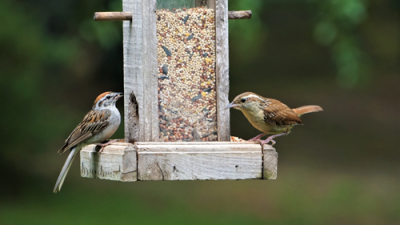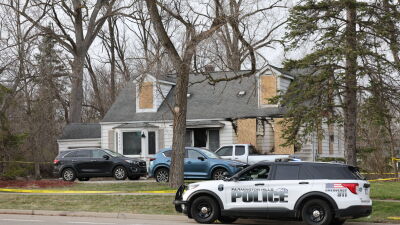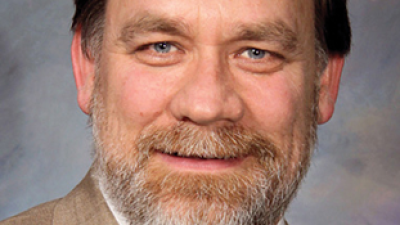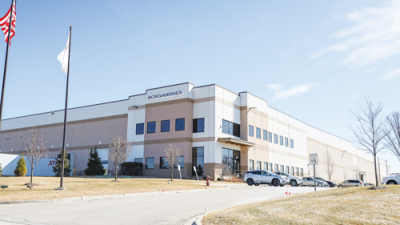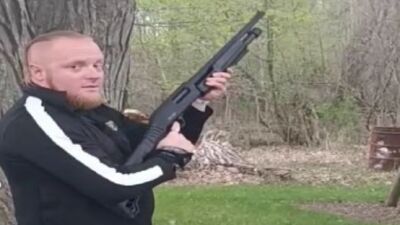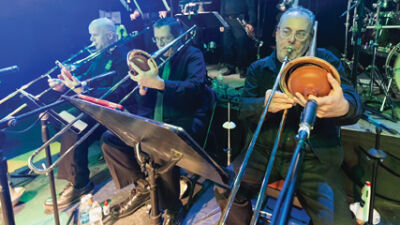ROCHESTER — Those battling addiction can look to the Oakland University Police Department for recovery assistance, thanks to a new program.
On Jan. 13, the Oakland University Police Department became the 122nd law enforcement agency and community partner in Michigan — and the fifth college or university in the state — to collaborate with Families Against Narcotics on its Hope Not Handcuffs initiative.
“We join Michigan State University, Macomb Community College, Saginaw Valley State University and Delta College in bringing the Hope Not Handcuffs program to our university community,” OU Police Chief Mark Gordon said.
Since launching in February of 2017, FAN’s Hope Not Handcuffs program has connected nearly 8,800 people statewide with the resources necessary to find recovery from addiction.
“That’s a huge number,” said Hope Not Handcuffs Director Kim Baffo. “We couldn’t do that without the community.”
Any person who is battling a substance use disorder can call or go to any Hope Not Handcuffs-affiliated police department or community partner — like the Oakland University Police Department — and ask for help.
Gordon said those who need assistance will be greeted with “support, compassion and respect,” and one of FAN’s trained volunteer “Angels” will provide them with resources and guide them through a brief intake process to help them get the treatment they need and deserve.
“Substance abuse disorders are commonplace, but they are often hidden from people,” Gordon said. “People are kind of ashamed that they get into that sort of circumstance, so we want to offer other alternative solutions to this problem, other than incarceration, handcuffs and arrests. That is the basis behind this program. Let’s give them the assistance that they need from a mental health perspective.”
Hope Not Handcuffs also provides trained and certified peer recovery coaches for the individuals who participate in the program, as well as family recovery coaches for family members or loved ones. The goal is to help everyone who’s been affected by the disease of addiction to find recovery.
The OUPD is still looking for volunteer “Angels” to help with the new Hope Not Handcuffs initiative on campus.
“We had a very positive response from our community when we announced the need for Angels and many people stepped forward. Currently, we have 45 people from the OU community signed up, 19 of which have been trained so far,” Gordon said.
Anyone can become an Angel, but a two-hour training session is required. A free training session will be offered 11 a.m.-1 p.m. Jan. 31 in Room 127 inside the Oakland Center. Additional training sessions will be held as more people volunteer.
“An Angel can be anybody in the community,” Gordon said. “At Oakland University, it can be a student, faculty or staff member, anybody who wishes to help.”
Anyone who is interested in volunteering can email Lt. Nicole Thompson at teske@oakland.edu or visit www.familiesagainstnarcotics.org/hopenothandcuffs-angel to register for a training session. For more information about FAN, visit familiesagainstnarcotics.org or the Hope Not Handcuffs program at hopenothandcuffs.com.
 Publication select ▼
Publication select ▼